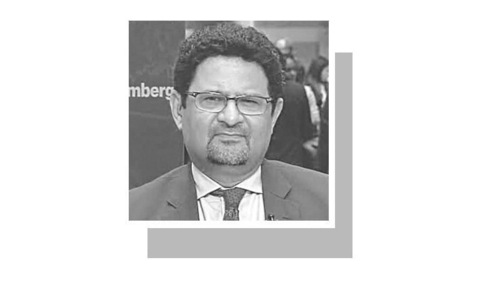DEMOCRACY in Pakistan has yet to yield significant improvements in living standards and provide a stable environment for businesses to thrive. Despite this, the recent elections saw 60.5 million Pakistanis using ballots, more than ever before in the nation’s history.
It indicates people’s profound trust in democracy and a belief, perhaps perceived irrational by many observers, that an elected government has the potential to serve the public better and advance the nation’s long-term interests. The crucial question looms: Will the new government live up to this trust and deliver on its promises?
Unfortunately, the situation is incredibly intricate, and the success hinges greatly on the competence of the new economic team in navigating these challenges. Pakistan confronts daunting economic hurdles: inflation has soared to an unprecedented rate of over 30 per cent, while economic growth remains almost stagnant if one considers the population growth rate.
Twin deficits, both fiscal and current account, are looming threats. The country teeters on the brink of debt crisis, with a mere $8 billion in reserves against approximately $24bn in external debt obligations due by June 2024, as reported by the central bank. Compounding these issues, the International Monetary Fund’s (IMF) $3bn Stand-by facility, which helped Pakistan avert sovereign default last year, is set to expire in March 2024.
Managing the expectations of the public and the business community while adhering to stringent stability targets is not an enviable task
The IMF mandates stabilisation measures, including utilities and petrol price hikes and substantial subsidy cuts, despite about 40pc of the population already living in poverty.
While politics and economics often intersect, the primary emphasis here lies on the economy, where the selection of the next finance minister holds paramount importance. While the partners have already decided on the prime minister of the incoming coalition government, the proposal for the finance minister, the second most critical position in any administration, remains pending.
Sources in Islamabad have revealed numerous contenders for the influential position, with former finance minister Ishaq Dar emerging as a prominent candidate. Despite the Pakistan People’s Party’s decision not to participate in the cabinet, some names affiliated with it have also surfaced.
Besides members of the two key parties in the coalition, several names have been forwarded by other stakeholders, with some supposedly favoured by key lenders, while others are said to be patronised by the establishment.
However, not all rumoured candidates for the finance minister’s position are members of the parliament currently, which is a requirement to take up the position. A Senate nomination could pave the way for their appointment.
Among the top ten contenders for the position, besides Ishaq Dar, are Suleman Shahbaz, Ehsan Iqbal, Khawaja Asif, Naveed Qamar, Senator Saleem Mandviwala, Khalid Mansoor, Dr Waqar Masood, Dr Raza Baqir, Dr Hafeez Sheikh and the caretaker Finance Minister Dr Shamshad Akhtar. The last five on the list are technocrats who have held senior positions in economic ministries or served as governors of the State Bank.
“There is a growing internal opposition to the nomination of Ishaq Dar within the PMLN. His reputation of being temperamental has led to strained relationships with several party leaders, including the prime minister designate. However, he is perceived to wield influence due to his close association with PML-N supremo Nawaz Sharif”, elaborated a senior bureaucrat with experience working with most candidates on the list.
Another senior source in Islamabad attributed Mr Dar’s leadership style to his reluctance to trust even his own team members. “He has a penchant for micromanaging and is averse to delegating responsibilities or sharing decision-making authority. As a result, he often takes on more than one person can handle, leading to delays and conflicts,” a source stated.
During his tenure as finance minister starting in 2013, at one point, Mr Dar reportedly chaired 48 committees and working groups in addition to his regular duties.
“To prioritise economic decision over political considerations, the country requires a formidable finance minister, someone capable of implementing tough measures. Among the candidates, Ishaq Dar stands out as the most equipped to deliver results in the current scenario,” asserted a business leader close to PML-N, while deliberating on the potential choices for the finance minister.
“Appointing a father-son duo as prime minister and finance minister would further erode the integrity of an already beleaguered and fragile government, with minimal prospects of bolstering the much-needed political stability essential for addressing economic challenges. The suggestion of Suleman Shahbaz’s name for the position reflects a lack of seriousness on the part of the proposer,” remarked an observer.
Others speculate that, driven by the urgency to appease lenders and kick-start negotiations for the 25th IMF programme, the incoming government might consider appointing a candidate favoured by the lenders. In exchange, they anticipate the IMF may offer politically acceptable terms for a larger, longer-term credit deal. This group envision Raza Baqir assuming the pivotal role of finance minister in this scenario.
All discussants on the topic unanimously agreed on the high stakes involved, recognising that the next finance minister faces the formidable task of meeting the expectations of both the public and the business community while simultaneously adhering to stringent stability targets.
Published in Dawn, The Business and Finance Weekly, February 19th, 2024














































Dear visitor, the comments section is undergoing an overhaul and will return soon.